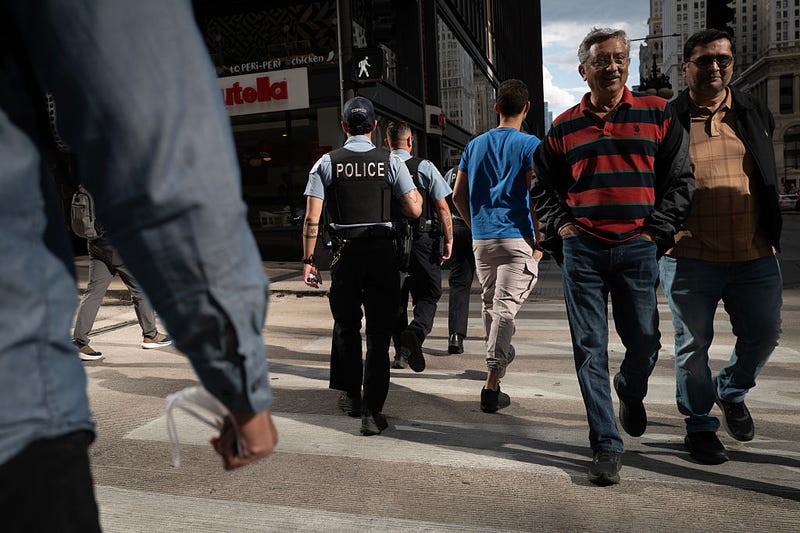
Chicago Mayor Brandon Johnson and other top city leaders said they'll be ready for anything if President Trump follows through with reported plans for a federal presence in the city.
The mayor and other key members of his administration briefed reporters Thursday morning on Chicago's official response to a possible arrival of National Guard and other federal authorities, ahead of meetings with members of City Council.
A spokesperson for Naval Station Great Lakes in the north suburbs confirmed the base has been asked to provide assistance to Homeland Security officers, ahead of what could be stepped-up immigration enforcement in the area.
But the mayor repeated that despite a long history of federal and local cooperation in law enforcement matters, this situation is different.
"Unfortunately, we just have not had that level of coordination and collaboration in this particular matter," said the mayor. "We have had no communication with the White House."
The President last week suggested he might send federal forces to Chicago, similar to operations in Washington, D.C. and Los Angeles, in response to violent crime. He's described Chicago as a "killing field," even as statistics show a 30% reduction in homicides in the city.
Chicago police superintendent Larry Snelling said if the department receives a call about federal agents in a neighborhood, officers will arrive in uniform with a supervisor to assess what's happening.
"We will not engage in immigration enforcement," Snelling says, while noting that officers have also been told not to interfere with immigration actions: "We also do not engage in a way where we're obstructing federal agents."
This follows criticism from some aldermen and community leaders, after Chicago police were seen providing crowd control around an ICE roundup near a facility in the South Loop back in June. City leaders have said the police involvement did not constitute assistance.
Deputy Mayor Beatriz Ponce de León oversees the city's response to immigrant communities. She said her office is working to make sure people know their rights, and to urge families to prepare in case of what she called a "separation," including "giving guardianship to a trusted friend or family member in case they are separated from their children."
After National Guard troops in Washington, D.C. were seen clearing out homeless encampments during their deployment there, Chicago's chief homelessness officer Sendy Soto said city workers will not assist federal forces that try to do the same thing here, and her team is delivering palm cards to unhoused people informing them of their rights.
"The city believes firmly that being unhoused is not a crime," Soto said.
"We just want to keep peace in our city," Snelling continued, "and we want to make sure that every resident in the city of Chicago maintains safety and security."
